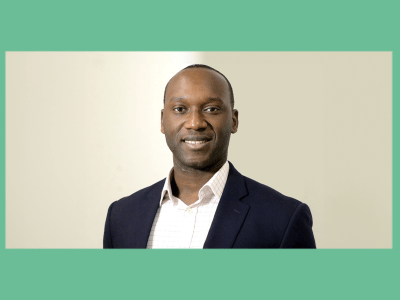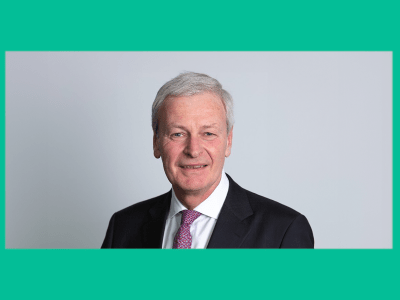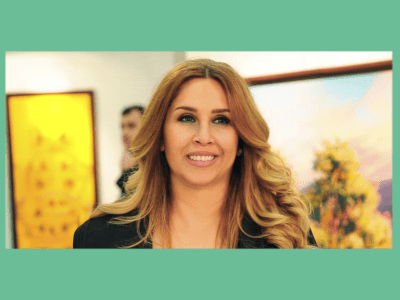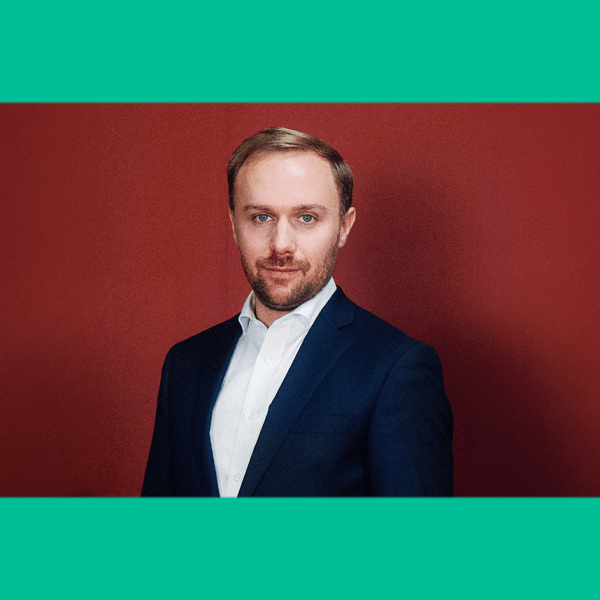“Hybrid Working Is Here to Stay” – Alain Dehaze, CEO of the Adecco Group
The Adecco Group is the world’s leading global workforce solutions providers. It employs 34,000 people, is present in 60 countries and supplies talent to 100,000 enterprises. Founded nearly 70 years ago to provide recruitment services, the Adecco Group now comprises nine core brands providing everything from upskilling and retraining services to IT consultancy.
It was an honor to welcome Alain Dehaze, CEO of the Adecco Group, to our exclusive series of Learning From Leaders conferences. Throughout his lively conversation with Peter Vanham, author of “Before I Was CEO”, Alain discussed his career journey, shared his business philosophy and offered advice to students seeking to find their place in the labor market of tomorrow.
Here, we’ve distilled some of the essential advice Alain shared.
The Journey To Work Starts Before Graduation
Alain advised students to get into the job market as soon as possible – even before graduation. He commented that he cleaned offices to earn an income while a student and this early experience formed an essential part of his career trajectory. This job led to him being hired as a sales support manager at Henkel, then the leading cleaning solutions company. Without his practical understanding of the products, he would not have been given the job.
“Gather as many experiences as possible because these experiences, ideally in line with what you want to do, will give you more credibility when you look for a job in the industry or company you would like to work for,” he said.
Choose a Company for Its Culture
When deciding where to work you should, “join for a career, and not for a job or a salary,” Alain explained. When Alain chose to accept the offer from Henkel, he was looking for a company that would invest in him through training and development: “you don’t join a company, you join the culture, you join a purpose.”
One way to understand the culture of a company and determine if it is the right place for you is to look at the Great Place To Work rankings. The Adecco Group are proud to be seventh in the global rankings. “For us, people are extremely important,” Alain said. He also suggested making use of resources such as LinkedIn to find out what other employees think of the company, as well as to see the profile and background of people who work there: how long they stay in their roles, whether they have been promoted, and if they are continuously learning. These are all important indicators of workplace culture. “The culture is about the people and how they are living the values of the company,” Alain remarked.
Follow Your Passion
Central to Alain’s business philosophy is his belief that you should “follow your passion, because you can’t be successful if you have no passion for what you do.” Throughout the conversation, Alain highlighted the importance of working alongside great people: “Listen to your heart and follow your passion, and then find a great mentor, somebody who will develop you, especially when you are young.”
These two factors – passion and people – go hand-in-hand because, like Alain, you may not be able to immediately fulfill your passion upon graduation. A career is a journey and sometimes that means recognizing and working towards your passion, rather than instant gratification. Essential to that journey are people who see that you have talent and support and encourage you to reach your full potential.
After ten years at Henkel, where Alain changed roles several times, he found his next opportunity at ISS, the number one cleaning and facilities management company worldwide and previously one of his biggest customers. He knew the people; he knew the culture; and when they approached him, he knew he wanted to work with them. As with all his career decisions, it came down to the people – and one person in particular, who became his mentor. The role also fulfilled the next dream Alain had for his career: to become a general manager and work in international business development.
Don’t Be Afraid To Step Backwards in Order To Move Forwards
Successful careers do not always follow straight lines. Alain used his own career as an example of how it’s sometimes necessary to make a move that may not make sense to others in order to get further ahead.
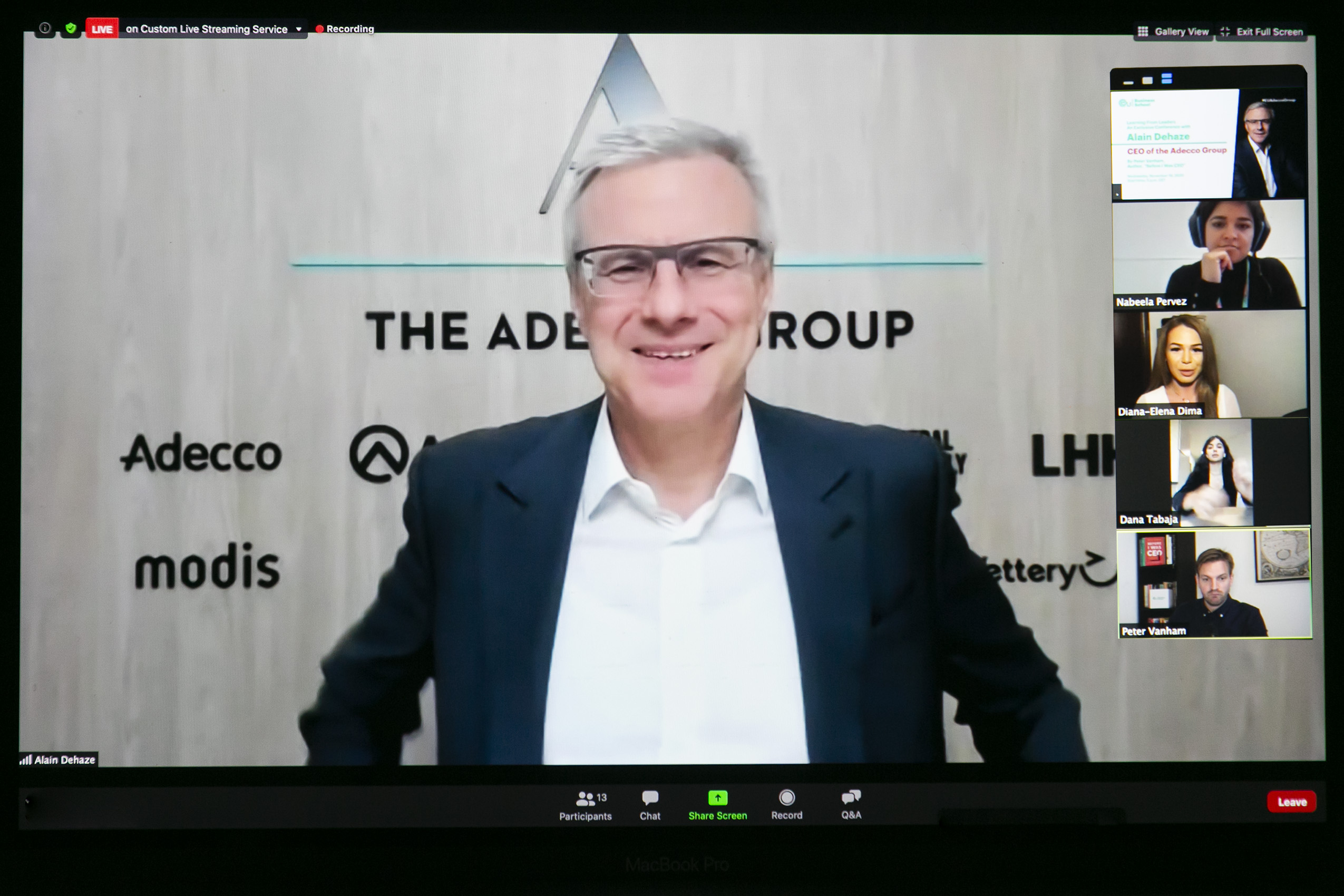
After ISS, Alain joined Solvus, where his career moved extremely fast. After little more than a year, he was appointed CEO, becoming the youngest CEO of a listed company in Europe. Solvus was struggling and required a huge turnaround, but Alain had gained the board’s trust. After taking on the role, he changed a large part of his management team and, after just about a year, the company had more than quadrupled its share price. The success of the turnaround was reliant, Alain reflected, on having the right people on board.
Alain’s next career move surprised many. Moving from a company worth €3.5 billion to one worth €1.2 million seemed an unusual leap for a professional on a clear path to the top. However, one of Alain’s unfulfilled dreams had been to be an entrepreneur and this was the time to fulfil it. He bought a stake in a Dutch international company, invested heavily in its development, and then sold part of it to the Adecco Group. Alain joined Adecco as regional manager for Northern Europe and then rose to become CEO. Had he not taken the leap to fulfil his passion of being an entrepreneur, that opportunity may never have arisen.
Alain’s non-linear journey demonstrates the benefits of taking a step back and staying true to your passion. That way, you can be sure of finding success.
What Does the Future of Work Look Like and How Can You Navigate It Successfully?
Drawing on insights from The Adecco Group’s day-to-day business and their research, Alain was able to offer the audience of EU students, alumni and guests a clearer picture of what the future of work will look like in the near-term – invaluable advice for anyone heading into the labor market.
One key insight was that “hybrid working is here to stay.” The Adecco Group predicts that work will continue to be split between remote working and in-office working. Alain shared three recommendations that emerged from the Adecco Group’s paper, Resetting Normal: Defining the New Era of Work, which address the challenges of the increasingly blurred line between the personal and the professional.
- As far as is possible, make sure you differentiate between where you work and where you conduct your private life.
- Make sure you have the necessary time management in place to respect the difference between home and work life. Create rituals to start and finish your day in a structured way so that you can transition between the personal and the professional, rather than living in a continual hybrid of the two.
- Get dressed professionally, even if you are at home.
The same study, which surveyed 8,000 professionals across eight countries, found that 28% of respondents reported their mental health has been affected by the upheaval of the past months, while only one in 10 managers were equipped to support struggling employees. Emotional intelligence is ;an essential skill for leaders as we continue to inhabit a VUCA, or volatile, unpredictable, complex and ambiguous, world. “Emotional intelligence is not something you inherit; it is something you can learn,” Alain noted. And motivating, engaging and leading a remote workforce is a new challenge which requires a new way of working. Implementing regular social gatherings via Zoom or a daily huddle each morning can be brilliant methods of coming together, connecting around a shared purpose and starting the day with motivation.
The Growth of Freelance Working
Another major trend is the growth of freelance working. “Many of today’s younger generations are not keen to join a big conglomerate; they want to be autonomous and have the flexibility to organize their own work,” Alain explained. In the west, workers between the ages of 18 and 25 now change jobs an average of 11 times, and 47% of graduates entering the labor marketing are doing so as freelancers. As a result, “companies are now learning to work with that kind of workforce,” he commented.
However, this trend has also led to the pandemic having a disproportionate effect on young people. “All types of flexible contracts were the first ones being terminated, but we have also een that governments have adapted the social protection schemes available to freelancers.” This is essential because the trend is not going anywhere: “It is here to stay because it is a demand from the younger generation. They want more flexibility. Not that they want to work less, but they want more flexibility and more autonomy.” And it is a trend that suits companies now, too: “What we anticipate is that, not only because of this COVID situation but because we are living in a so-called VUCA world, for companies to be sustainable and to resist volatility one key solution is to put more flexibility into the way they organize their labor force.” Freelancers, temporary staff and outsourcing are part of the flexibilization of the labor force, a trend which will continue to accelerate. Moving forward it is essential that governments enact legislation that will continue to protect workers who don’t have the safety net that comes with a traditional job.
Skills to Support a Successful Career
Despite the generally poor global economic outlook, there are still plenty of sectors that are flourishing. “Everything that is linked to STEM skills is booming”, Alain confirmed, which covers industries including engineering, medicine and technology. The platform economy is also doing incredibly well, with e-commerce, pharmaceuticals and logistics growing steadily. Companies that deliver goods and services such as Amazon, Uber Eats, and so on, are experiencing unprecedented levels of demand. Between March and April, when much of the economy was static, the Adecco Group recruited 16,000 people for one the largest platform companies in a fully virtual manner, in roles at every level from product development to logistics.
Hard skills, however, are not the only ones that matter. It’s also important to “develop your soft skills.” “You need emotional intelligence, creativity, analytical strength, everything that the robot, the algorithm, the artificial intelligence cannot solve today,” Alain advised.
Learning to Become a Leader
At EU Business School, students gain a practical business education learning from professionals, consultants, entrepreneurs and business leaders who share insights and advice from their own experiences, as well as explaining the theory and teaching the skills needed to launch a successful career.
To kickstart your future, explore our broad range of internationally accredited, English-taught programs today.


